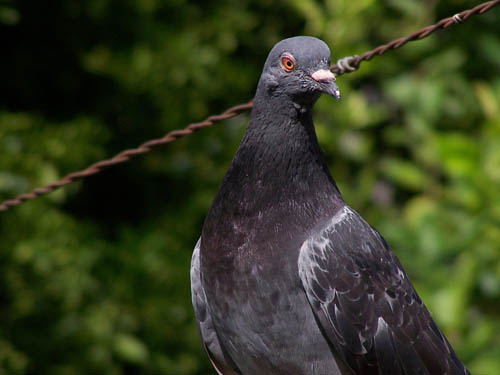SCOTLAND’S parliament is finally free from its pigeon plague after a nine year battle with the birds.
The pesky birds have been peppering the £414m building in Edinburgh with poo since it opened in 2004.
And in 2009, concerned officials called for help from pest control firm NBC to help combat the problem.

As part of a £40,000 annual contract, birds of prey have been flown around the building twice a week in a bid to scare off the feathery fiends.
And now it appears to have worked with the no pigeons currently nesting on the site and the number of bird sightings have dropped by 50%.
Harris hawks and peregrine falcons have won the war against pigeons at Holyrood after scaring the critters away.
Area manager for NBC Bird and Pest Solutions, Ian Cain, said: “Our birds have now established their own territory.
“We’re now down to a couple of visits a week.”
Under the contract the birds of prey cannot be allowed to kill the pests but simply scare them away.
Other deterrent methods are also used daily including spikes, wires and gels.
A Scottish Parliament spokesman said: “Our falconry contractor uses birds of prey, which is just one of the methods we used to deter pigeons from Holyrood.”
Despite the falconer’s success, their efforts have been hampered by a series of unfortunate events.
In 2010 one of the hawks was found to have died inside the engine of a train.
And then just two years later, its replacement was shot by Andrew Hutchinson, who was ordered to pay £1,500 to train a new bird as well as a £350 fine.
Three human diseases are linked to the pigeons droppings.
Histoplasmosis is a disease caused by a fungus that grows in the birds droppings and can cause fatigue, fever and chest pains.
Psittacosis is another rare but infectious disease which is also associated and people contract it when they inhale dry particles from the poop.
And although cryptococcosis is an extremely rare it too can result in fatigue, chest pain and even pneumonia.